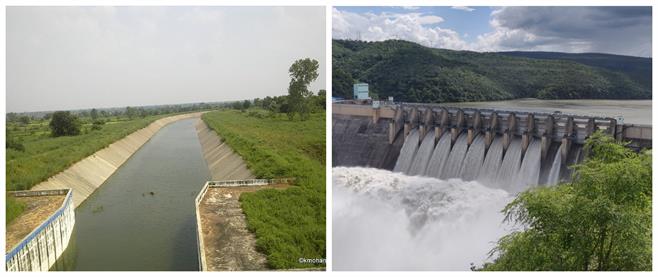PDF chapter test TRY NOW
Using water daily is something that all of us do. Water is used for many essential things like drinking, cleaning, and watering plants. Some of us use water in excess for many reasons that affect the freshwater availability. There are some alarming facts about the state of the water supply.
The consequences of global climate change can be felt all across the world. For a country like India, where agricultural activities are still reliant on regular monsoon rains, it is a cause of concern for an adequate and consistent water supply.
The monsoon rains are responsible for most of India's water supply and regeneration. Despite nature's monsoon generosity, failure to sustain groundwater water availability has resulted from the loss of vegetation cover, diversion for high water demanding crops, and pollution from industrial effluents and urban wastes. Regions of water scarcity are closely correlated to the regions of acute poverty.
The diversion of large amounts of water from rivers diminished groundwater recharge in many downstream places. This includes urban areas with high water demands that rely on dams and reservoirs for supply.
Dams, tanks, and canals have been used for irrigation in various parts of India since ancient times. These were mostly local interventions run by locals who ensured that the fundamental minimum requirements for agricultural and daily necessities were met throughout the year.

Canal and dam
The use of this stored water (dams, canals or tanks) was closely regulated, and the best cropping patterns based on water availability were determined based on decades/centuries of experience. The advent of the British altered these processes and many other aspects of life.
Large-scale projects, such as dams and canals that span large distances, were initially developed and built by the British. Our newly created independent government also followed it with equal zeal. Local irrigation methods were neglected as a result of these mega-projects, and the government progressively took over the administration of these systems, resulting in the local people losing authority over the local water sources.
Reference:
https://commons.wikimedia.org/wiki/File:A_Canal_leaving_from_Gosekhurd_Dam._-_panoramio.jpg
